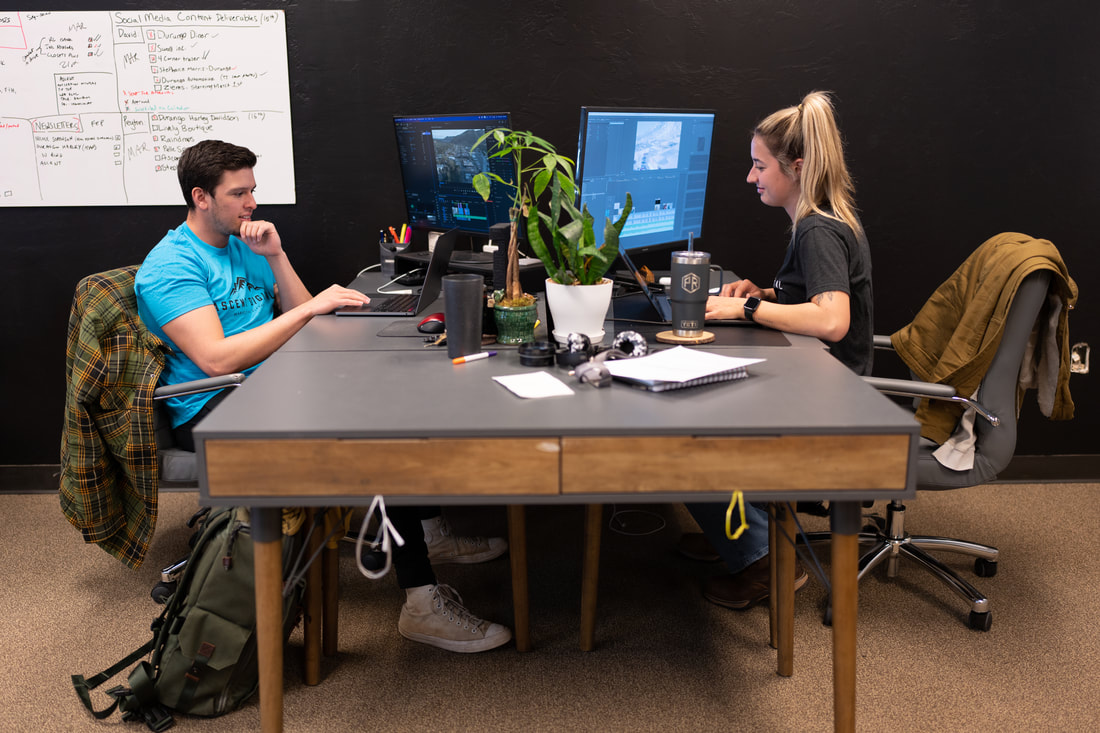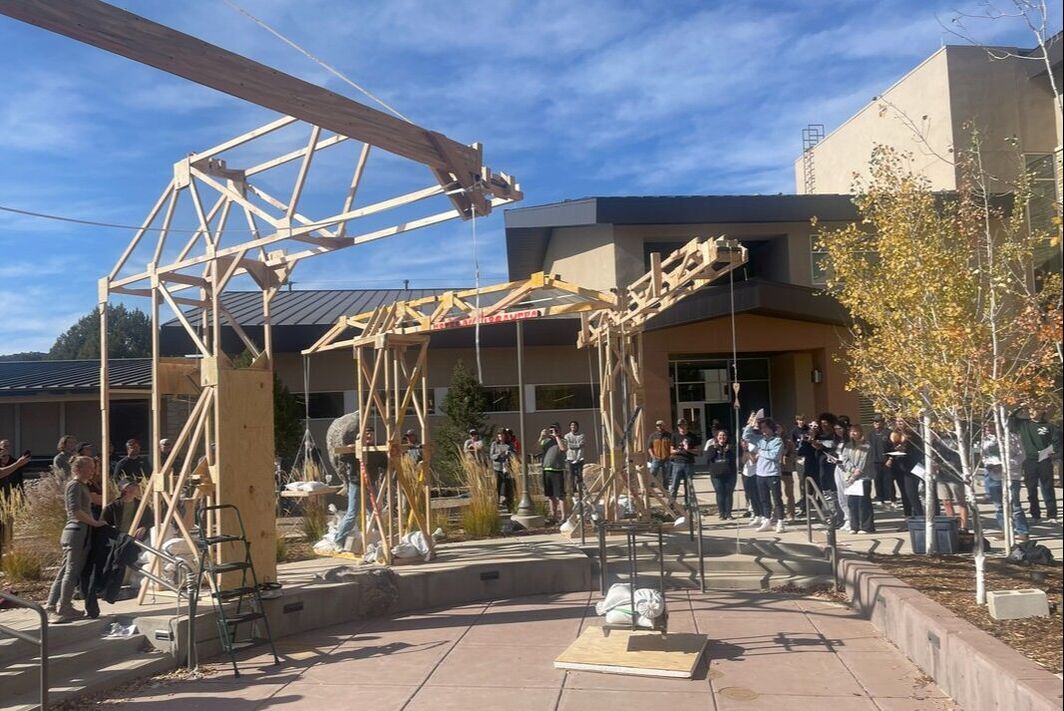2023 Spotlight Projects
In 2023, The Moniker Foundation made a three-year commitment to Fort Lewis College to fund paid student internships and the Engineering Department's Design Sequence. This commitment reflects our interest in helping to provide Fort Lewis students with enrichment experiences that go above and beyond the typical college curriculum, and that better equip graduates for successful career transitions. We believe that investments made in Fort Lewis College, and their students, will help raise the caliber of education, attract more talent to the region, and bolster the local economy with a stronger, more well-educated workforce.
The investment in paid internships provides students with the encouragement that they need, in the form of financial incentives and an organized platform, to pursue internship opportunities while in College. We believe that although holding a regular, unrelated job while attending college certainly has its benefits, and may be necessary to most, it's also important for students to experience what a job might look like in the field of their choosing, and more simply, to experience a professional environment so that they transition more smoothly after graduation. Additionally, we realized that a barrier existed with the companies that provide these opportunities. It can be difficult for a company to justify a short-term internship every year when the costs and time commitments seemingly outweigh the benefits. We recognized that local companies needed financial incentives as well to more seriously consider a commitment to college interns. Therefore, we partnered with Fort Lewis College's Career Center to build out a program that bridges students with interested companies in various fields, and we provide either full or partial funds for the internships. To date, the program has been successful and has garnered the interest of other donors to participate as well. In 2023, we funded 11 internships, ranging in focus from engineering, to environment and nonprofit.
Our investment in the Engineering Design Sequence stems from our interest in hands-on, project-oriented curriculum for engineering students that has real world applications. The Design Sequence currently includes a three-credit course devoted entirely to design in sophomore and junior years, and a six-credit course sequence in the senior year, working in design groups of four to eight students. The teams make actual physical design products, instead of solely paper studies, and the groups are multidisciplinary and use industry practices to mirror how professional engineering projects reach completion. Funding for the courses/projects is critical to a successful outcome, and it goes without saying, the more funding students have to work with, the more fulfilling and enriching the experience. Moniker's board and staff were amazed at the difficulty of these courses and the quality of deliverables that students were achieving at each level. Funding in 2023 went to the newly created Design Sequence fund, which allocates funds to each course as the Engineering Department sees fit. The picture shown above was taken at the 2023 Sophomore Design Sprint, which was the culmination of the course.
The investment in paid internships provides students with the encouragement that they need, in the form of financial incentives and an organized platform, to pursue internship opportunities while in College. We believe that although holding a regular, unrelated job while attending college certainly has its benefits, and may be necessary to most, it's also important for students to experience what a job might look like in the field of their choosing, and more simply, to experience a professional environment so that they transition more smoothly after graduation. Additionally, we realized that a barrier existed with the companies that provide these opportunities. It can be difficult for a company to justify a short-term internship every year when the costs and time commitments seemingly outweigh the benefits. We recognized that local companies needed financial incentives as well to more seriously consider a commitment to college interns. Therefore, we partnered with Fort Lewis College's Career Center to build out a program that bridges students with interested companies in various fields, and we provide either full or partial funds for the internships. To date, the program has been successful and has garnered the interest of other donors to participate as well. In 2023, we funded 11 internships, ranging in focus from engineering, to environment and nonprofit.
Our investment in the Engineering Design Sequence stems from our interest in hands-on, project-oriented curriculum for engineering students that has real world applications. The Design Sequence currently includes a three-credit course devoted entirely to design in sophomore and junior years, and a six-credit course sequence in the senior year, working in design groups of four to eight students. The teams make actual physical design products, instead of solely paper studies, and the groups are multidisciplinary and use industry practices to mirror how professional engineering projects reach completion. Funding for the courses/projects is critical to a successful outcome, and it goes without saying, the more funding students have to work with, the more fulfilling and enriching the experience. Moniker's board and staff were amazed at the difficulty of these courses and the quality of deliverables that students were achieving at each level. Funding in 2023 went to the newly created Design Sequence fund, which allocates funds to each course as the Engineering Department sees fit. The picture shown above was taken at the 2023 Sophomore Design Sprint, which was the culmination of the course.
Other 2023 Projects Completed
- Manna - $7,000 for general operating support and $5,000 matching support for Manna Community Kitchen Take-out Window and Food Market
- Startup Colorado - $3,000 for Southwest Region programming
- The Good Food Collective (La Plata Food Equity Coalition) - $2,500 for general operating support
- Rural Philanthropy Days - $1,400 sponsorship for 2023 RPD event


